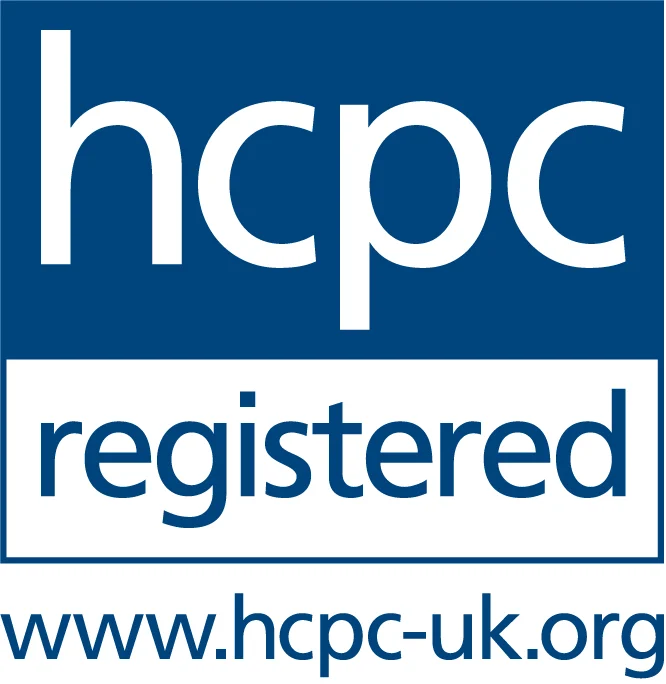What is Autism Burnout? Signs and symptoms, causes, risk factors, and practical strategies for recovery.
Read PostWhat is Depression?
Depression is a common, serious mood disorder characterised by persistent feelings of sadness, emptiness, or irritability, coupled with loss of interest or pleasure in most activities for at least two weeks.
Unlike normal sadness (which is a reaction to specific life events) clinical depression involves symptoms that are more intense, prolonged, and not always tied to an identifiable trigger.
Globally, an estimated 5% of adults suffer from depression at any given time, with women affected more often than men. In England, between 4% and 10% of people will experience depression during their lifetime. Anxiety and depression are the most commonly diagnosed mental disorders.
What are the Symptoms of Depression?
Psychological Symptoms
- Persistent low mood or sadness.
- Feelings of hopelessness, worthlessness, or excessive guilt.
- Diminished ability to think, concentrate, or make decisions.
- Recurrent thoughts of death or suicide.
Physical Symptoms
- Fatigue or loss of energy nearly every day.
- Significant changes in appetite or weight..
- Sleep disturbances.
- Physical aches and pains without clear medical cause.
Behavioural Changes
- Social withdrawal and reduced participation in previously enjoyed activities.
- Irritability, restlessness, or slowed movements and speech.
- Increased use of alcohol or other substances to self-medicate.
- Difficulty maintaining work, school, or family responsibilities.
What are the Causes and Risk Factors?
Depression can occur from an interplay of biological, genetic and environmental factors.
Brain chemistry:
- Imbalances in neurotransmitters like serotonin, norepinephrine, and dopamine.
Hormonal changes:
- Fluctuations during menstrual cycles can heighten risk, with around 10% of pregnant/postpartum women affected.
Genetics:
- Family history of depression or other mood disorders significantly increase susceptibility.
Medical Conditions:
- Chronic illnesses, chronic pain and sleep disorders are strongly linked to higher depression rates.
Social Factors:
- Low socioeconomic status, unemployment, social isolation, childhood trauma, and stressful life events are key contributors.
Impact on Daily Life
Depression can severely disrupt daily functioning - impairing work or academic performance, straining relationships, and diminishing quality of life. People with depression often report reduced productivity and difficulty maintaining social connections. Comorbid anxiety is common, which can compilcate treatment and diagnosis.
When to Seek Help
If you notice depressive symptoms persisting most days for two weeks or longer, or if they significantly interfere with daily functioning, it’s important to reach out for professional support. Early intervention can greatly improve the outcomes and reduce the risk of it becoming chronic.
Equilibrium Practice does not offer crisis mental health support. You, or someone you know, might be in a mental health crisis if:
- You are thinking of hurting yourself
- Suicide seems like the only option
- Someone has made threats to hurt you or to hurt someone else
- You are experiencing extreme distress that feels overwhelming.
- If you have an IMMEDIATE, LIFE-THREATENING EMERGENCY, requiring mental or physical health assistance, RING 999
- If you can USE THE TELEPHONE, CALL SAMARITANS on 116 123 24/7 FREE
- If you are STRUGGLING TO CALL SOMEONE, you can TEXT SHOUT on 85285
Whatever you are going through, there is help in a crisis.
Useful websites:
https://www.samaritans.org/
https://www.papyrus-uk.org
https://www.mind.org.uk/
Treatments
Therapy:
- Cognitive Behavioural Therapy (CBT) and interpersonal therapy can effectively reduce depressive symptoms and help teach coping strategies.
Medications:
- Antidepressants including SSRI’s, SNRI’S, NASSA’s can be used to treat individuals with clinical depression.
Lifestyle changes:
- Regular exercise, healthy diets, getting enough sleep, and a supportive circle can work as protective factors against depression.
Contact Us Now
If you are experiencing any of the depressive symptoms, it is important to seek help promptly as there are evidence-based and effective treatments. Contact us to arrange a consultation.
Contact Us NowReferences
Canadian Mental Health Association, BC Division. (2015). What’s the difference between sadness and depression? | Here to Help. Www.heretohelp.bc.ca. https://www.heretohelp.bc.ca/q-and-a/whats-the-difference-between-sadness-and-depression
Hasler, G. (2010). Pathophysiology of depression: Do we have any solid evidence of interest to clinicians? World Psychiatry, 9(3), 155–161. https://doi.org/10.1002/j.2051-5545.2010.tb00298.x
Hirschfield, R. M. A. (2001). The Comorbidity of Major Depression and Anxiety Disorders. The Primary Care Companion to the Journal of Clinical Psychiatry, 03(06), 244–254. https://doi.org/10.4088/pcc.v03n0609
Mental Health Foundation. (2023). The most common diagnosed mental health problems: statistics. Mental Health Foundation. https://www.mentalhealth.org.uk/explore-mental-health/statistics/most-common-diagnosed-mental-health-problems-statistics
National Institute Of Mental Health. (2024). Depression. National Institute of Mental Health. https://www.nimh.nih.gov/health/topics/depression
NHS. (2021, February 5). Alternatives - Antidepressants. Nhs.uk. https://www.nhs.uk/mental-health/talking-therapies-medicine-treatments/medicines-and-psychiatry/antidepressants/alternatives/
NHS. (2023, July 5). Symptoms - Depression in adults. NHS. https://www.nhs.uk/mental-health/conditions/depression-in-adults/symptoms/
NICE. (2023a). Depression: What Are the Risk factors? NICE. https://cks.nice.org.uk/topics/depression/background-information/risk-factors/
NICE. (2023b, November). Depression - antenatal and postnatal: How common is it? NICE. https://cks.nice.org.uk/topics/depression-antenatal-postnatal/background-information/prevalence/
World Health Organization. (2023, March 31). Depressive disorder (depression). World Health Organization; World Health Organization. https://www.who.int/news-room/fact-sheets/detail/depression
Written by Harriet Perring (Assistant Psychologist), under the clinical supervision of Dr Lorna Stewart (Clinical Director, Consultant Clinical Psychologist).
Disclaimer: All blog content is for information only and is not mental health treatment.
Other Posts
Assessment of Autism Spectrum Disorder (ASD). What is Autism Spectrum Disorder (ASD)? What is a neurodiversity? How do I know if I need an assessment? What's involved in an assessment? How can a diagnosis help?
Read PostWhat is Cognitive Behaviour Therapy (CBT)? How does CBT work? How do I know if CBT is right for me? What happens during CBT?
Read PostWhat is Acceptance and Commitment Therapy (ACT)? How are CBT and ACT different from each other? What happens in ACT?
Read PostWhat is Exposure and Response Prevention (ERP)? How ERP works. The vicious cycle of OCD and how ERP helps. ERP vs psychotherapy. What to expect in ERP.
Read PostWhat is STAIR Therapy? What are the goals of STAIR?
Read PostWhat is anxiety? What are the symptoms of anxiety? What are the different types of anxiety disorders?
Read PostWhat is Childhood ADHD? How common is Childhood ADHD? What causes Childhood ADHD? What are the symptoms of Childhood ADHD? How is Childhood ADHD diagnosed? Related conditions. How is ADHD treated?
Read PostWhat is Adult ADHD (Attention Deficit Hyperactivity Disorder)? How common is Adult ADHD? What causes Adult ADHD? What are the symptoms of Adult ADHD? How is Adult ADHD diagnosed? Related conditions and treatment.
Read PostWhat is Dental Anxiety, or Dentophobia? What are the symptoms? What are the causes? What is the overlap between Dentophobia and Blood-Injury-Injection Phobia? What is the treatment?
Read PostWhat is Obsessive Compulsive Disorder (OCD)? What are the symptoms of OCD? OCD assessment. Causes and risk factors for OCD. Diagnosis and treatment options for OCD. When to seek help for OCD.
Read PostWhy isn't 'Asperger's Syndrome' a diagnosis anymore? What do we call 'Aspergers' Syndrome' now? What if I had a diagnosis of Asperger's Syndrome before 2013?
Read Post




